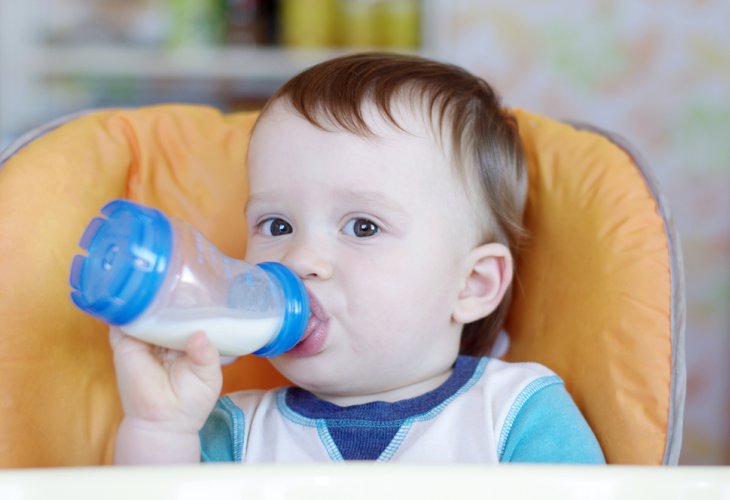Once and for All: Which Foods Are Recommended for Your Child's Healthy Brain Development?
A baby's diet has a critical impact on brain development during the first months of life. The American Academy of Pediatrics in the United States recently published a set of guidelines and recommendations for infant nutrition in the first 1,000 days of life. Read and keep.
 (Photo: shutterstock)
(Photo: shutterstock)A baby's diet has a critical impact on brain development during the first months of life. The American Academy of Pediatrics in the United States recently published a set of guidelines and recommendations for infant nutrition in the first 1,000 days of life, to help parents understand the importance of a varied diet for proper brain development.
The recommendations focus on infant nutrition in the first 1,000 days because this marks the most active period of neurological development, beginning 18 days after conception, when the basic structure that will later become the brain starts to form.
The guidelines were recently published in the journal Pediatrics, and according to the Nutrition Committee at the academy, nutritional components such as zinc, iron, protein, folic acid, various vitamins, and polyunsaturated fatty acids are essential and even critical for healthy brain development. In the absence of these nutrients in the infant's diet, according to them, brain function problems may occur.
In a conversation with TIME magazine, Dr. Sarah Jane Schwarzenberg, a physician at the University of Minnesota Children's Hospital and a member of the Nutrition Committee at the academy, explained that it is recommended to give a baby breast milk until age 6 months. After this period, the baby's need for iron and zinc increases, and since breast milk cannot provide the required amount, if the mother wishes to continue breastfeeding, it is necessary to supplement the diet with these nutrients.
In addition to food substitutes where these minerals are present, baby cereals with different grains are usually enriched with nutrients. It should also be noted that meat can serve as a natural source of zinc and iron: "The best diet for babies includes a variety of foods, including protein-rich meat, fruit, and vegetables that contain different vitamins and minerals."
According to Dr. Schwarzenberg: "Babies are very vulnerable in the first months of life to nutritional deficiencies. Their brain develops rapidly during the first two years, so we want pediatricians to recommend a healthy variety of foods and not just tell parents to give specific foods. We wish to make a positive statement about providing lean meat and fruits and vegetables and dismiss the idea of 'superfoods'. No single food can provide infants with the range of nutrients they need," she explained.
Research indicates that early life nutrition is crucial for building a healthy brain. It's noted that the brain triples in size by age two, and Dr. Schwarzenberg stated: "If we miss the opportunity during the first 1,000 days of life, there won't be a chance to correct it later." For example, iron is critical for building memory circuits and processing speed in the brain, especially in early life stages, something that may not be feasible later.
In conclusion, ensure that babies receive a diverse menu with healthy foods: "We all have a tendency to pick one or two things the child likes and not deviate much from them," Dr. Schwarzenberg noted, "but if you really want to develop good brain health for your children, you need to consider a wide variety of foods."

